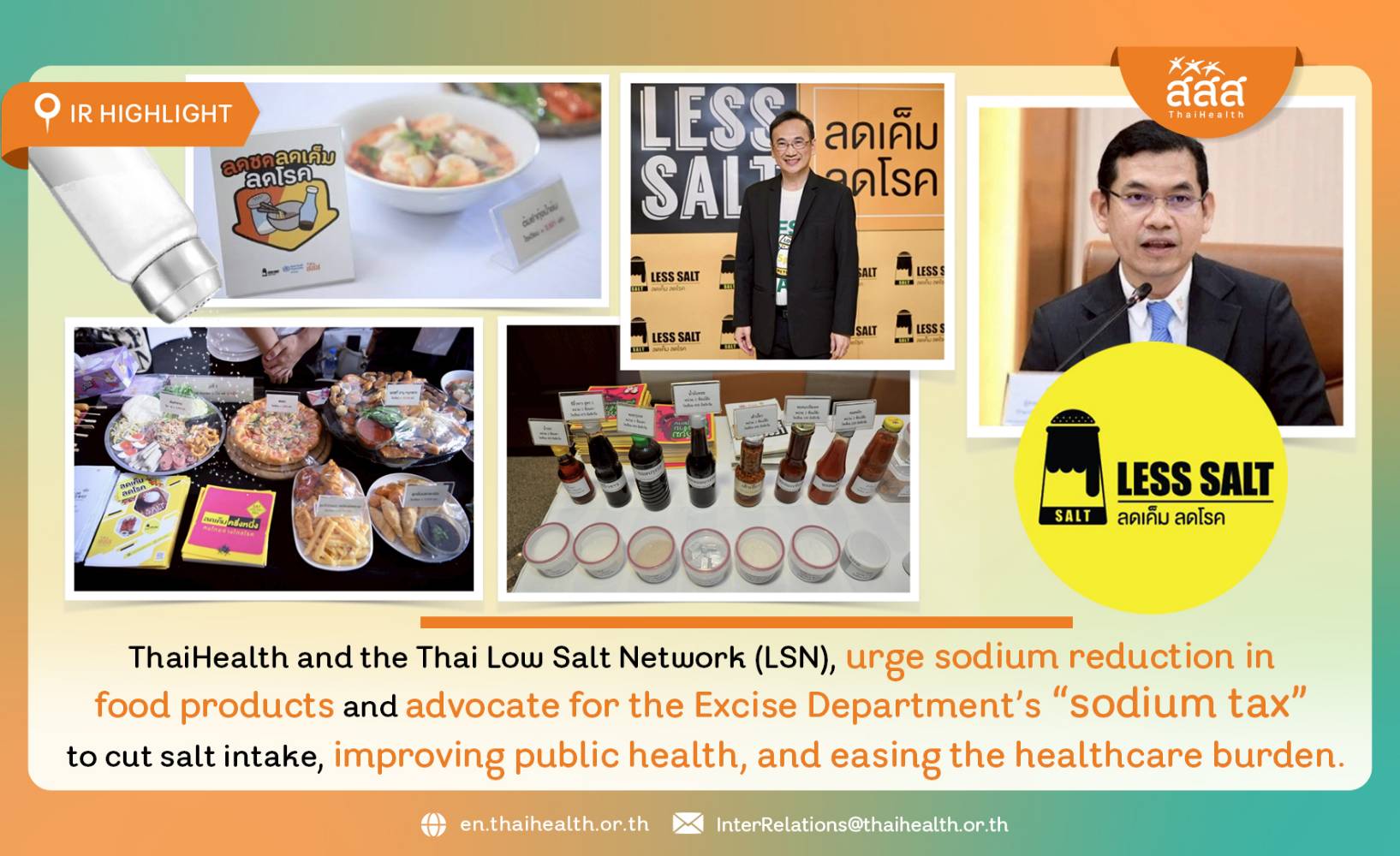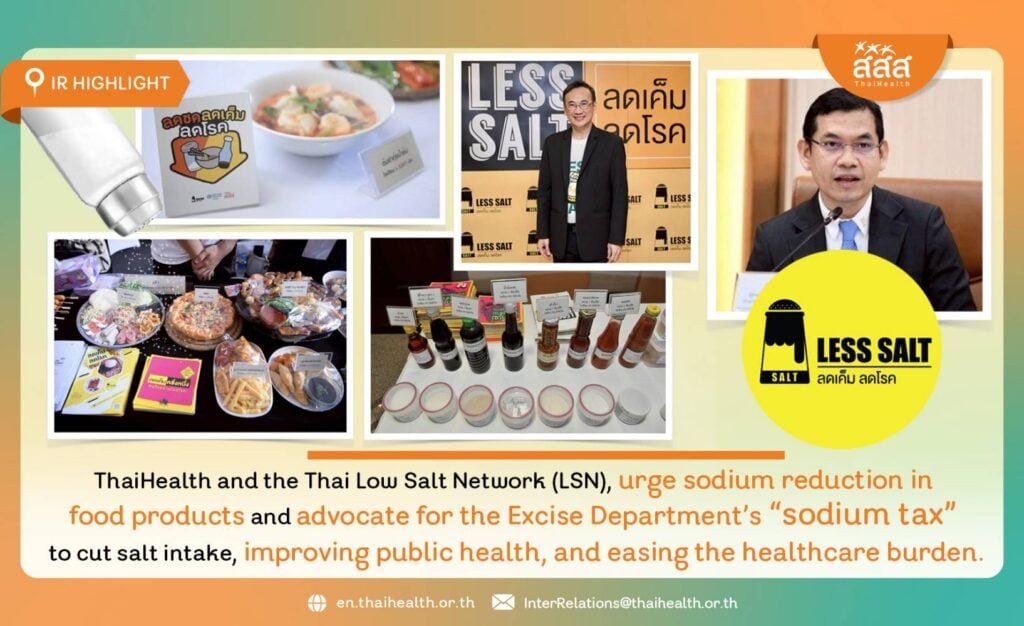
ThaiHealth and the Thai Low Salt Network (LSN), urge sodium reduction in food products and advocate for the Excise Department’s “sodium tax” to cut salt intake, improving public health, and easing the healthcare burden.

ThaiHealth and the Low Salt Thailand Network back the “salt tax” in 2025, urging sodium reduction in food products and advocating for the Excise Department’s sodium tax to cut salt intake, improve public health, and ease the healthcare burden. Food manufacturers are called on to reformulate lower-sodium products as Thais are found to consume twice the WHO’s recommended sodium level, with children at risk of early kidney disease.
On March 3, 2025, Dr. Pairoj Saonuam, M.D., Deputy CEO of the Thai Health Promotion Foundation (ThaiHealth), stated that daily sodium intake recommended by the World Health Organization (WHO) is no more than 2,000 mg. Nevertheless, Thais consume twice the recommended amount, approximately 3,636 mg per day, while Thai children consume 3,200 mg per day. Reducing sodium intake can help lessen the risk of serious health conditions. Currently, people tend to develop non-communicable diseases (NCDs) at younger ages. In fact, 10% of students in Bangkok Metropolitan Administration (BMA) schools have been found to have high blood pressure, while 14% are overweight or obese, which may contribute to increasing the risk of NCDs, particularly kidney disease. This calls for urgent action to curb sodium consumption, increase daily fruit and vegetable intake to 400 grams, and promote 150 minutes of weekly physical activity. ThaiHealth, together with the Low Salt Thailand Network, the Ministry of Public Health, and various partners, has been driving different supportive measures to foster an environment conducive to reducing sodium consumption, such as the nationwide Low Sodium Community Program, training programs for restaurants under the Less Salt, Same Great Taste initiative, and the promotion of healthier product alternatives. These represent an integrated collaborative effort to prevent and reduce the risks of NCDs associated with high sodium consumption. More importantly, if Thailand successfully enforces a sodium tax, it will contribute to a significant reduction in health-related losses.
Meanwhile, Assoc. Prof. Surasak Kantachuvesiri, M.D., Chairman of the Low Salt Thailand Network, commented on the recent news about the Excise Department’s plan to impose a sodium tax by 2025, stating that such a taxation measure would encourage food manufactures to reformulate their products with reduced sodium content, thereby offering consumers healthier choices. In fact, many countries have implemented such measures to promote public health. For instance, Hungary imposes a salt tax on snacks and condiments, resulting in a 20-35% decrease in the consumption of unhealthy foods. In addition, 80% of Hungarians opt to consume lower-sodium products, which has contributed to increased sales of such products. Similarly, Mexico, Tonga, and Fiji enforce sodium-based taxes on foods and products, recognizing that public education alone is insufficient to drive consumer behavior change. Given that fast food, street food, processed food, instant noodles, packaged porridge, seasonings, and snacks contain the high amount of sodium, this poses serious health risks and contributes to the increasing risk of NCDs, resulting in increased healthcare costs.
“With the implementation and enforcement of the sodium tax, food manufacturers will be encouraged to adjust their production processes to align with standard sodium levels in consumer products. This will benefit the manufactures by reducing production costs and increasing sales since consumers shift towards healthier products. Additionally, they will contribute to promoting public health by offering less salt yet delicious food products. The sodium tax is not intended to generate revenue but to incentivize the manufacturers to reformulate their products with lower sodium content. A transition period will be provided, ensuring that they do not bear the burden of immediate taxation. The tax is to be levied progressively based on sodium content—products with high sodium content will be subject to higher tax rates. At present, the Excise Department is determining sodium levels for different products based on nutritional standards. The initial focus will be on snacks since they are popular among children and adolescents, despite not being for their life. Excessive sodium consumption from a young age may increase the likelihood of developing a preference for salty foods in adulthood,” said Assoc. Prof. Surasak Kantachuvesiri, M.D.
Source: Health Promotion News Agency via https://www.thaihealth.or.th/?p=382936


